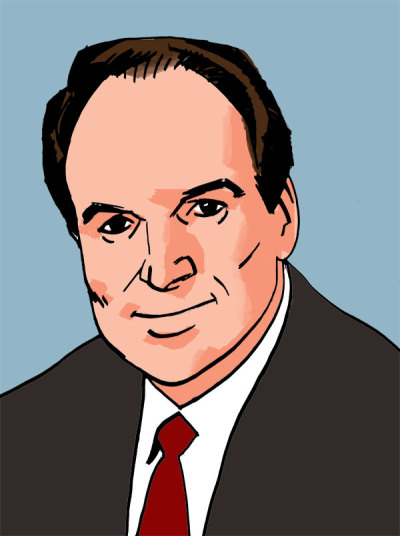Christian Leader Moral Failings: The Road to Hope

"How could it have happened?"
I was a dismayed 19-year old, having just read a bold-face headline revealing that the prominent 1950s evangelist who led me to Christ had had an affair, and resigned his ministry.
I put the question to Dr. Hudson Baggett, one of my theology professors and a mentor who had given me much guidance. Dr. Baggett's answer: "He fell because he thought it could not happen to him."
Willow Creek founder Bill Hybels, while denying allegations of sexual misconduct, nevertheless did remark that there were times when he was "naïve" in his relationships. I read his words and thought immediately of Hudson Baggett's reply to my question.
But there's an even greater question than "how" the crisis occurred: Is there any possibility of hope after a catastrophic fall or allegation?
Kenny Luck, in a previous Christian Post article, effectively addressed the "how" question. He identified three "phases" that constitute a "common pattern" leading to a moral failing or accusations of inappropriate behavior.
But is there a "road" to "hope"?
Paul, in Ephesians 5, warns against "immorality" and "impurity" in the church. But, the Apostle also writes in Galatians 6:1, "if another believer is overcome by some sin, you who are godly should gently and humbly help that person back onto the right path. And be careful not to fall into the same temptation yourself.Share each other's burdens, and in this way obey the law of Christ. If you think you are too important to help someone, you are only fooling yourself. You are not that important." (NLT)
Here are the segments on "the road to hope":
Hubris
As Kenny Luck noted, when a leader becomes highly visible because of successes, the individual can succumb to the illusion of invulnerability, leading to catastrophic naiveté, and perhaps reckless behavior.
The evangelist Hudson Baggett referred to fell because he wrapped himself in that beguiling smoke.
Humiliation
A mark of God's love is that He disciplines us as sons and daughters. (Hebrews 12:6-11) The form that discipline takes sometimes is radical exposure because "nothing is hidden that will not become evident, nor anything secret that will not be known and come to light." (Luke 8:17) Sometimes, says Jesus, even those "secrets" of the "inner rooms" are "proclaimed upon the housetops." (Luke 12:3)
This does not mean that people who go through the humiliation of false accusation are automatically guilty, because humiliation stings the innocent as well as the guilty. For all, however, humiliation can lead to the road of hope or the path to permanent despair and failure.
Humiliation, then, is the crossroads. There is no question regarding the road the Bible urges us to take when we are humiliated. However, it's up to the shamed individual to choose which road to travel.
Honesty
If the accused selects the road to recovery and restoration, he or she will first hit the hard trail of brute honesty.
"I feel the need to look deep inside myself, and determine what God wants to teach me through all this," said Hybels, while asking his church to pray for him. "I to often placed myself in situations that would have been far wiser to avoid," he said. This led Hybels to recognize that he was "naïve about the dynamics those situations created."
There are those who believe Hybels has not gone far enough in forthrightness with himself or others. The farther Bill Hybels—or any of us—are willing to go down the path of honesty, the greater our progress toward hope.
Honing
Paul writes that those who are "spiritual" must seek the restoration of the fallen brother or sister. The style of the "restorers" is to be gentle, though direct. And, those who try to bring back a fallen individual are to first be honest about themselves. They, too, might be vulnerable to the same temptations of the individual who suffered the moral failing.
The evangelist who led me to Christ preached hard against sin, but, in Hudson Baggett's view, was not sufficiently honest with himself about himself.
"Honing" also means that the accused individual must submit to the critiques of others. He or she may not be guilty as charged, but, as Hybels himself acknowledges, there are subtle behaviors that others can see, but about which we are naïve, that can give ground to accusation.
Hope
The good news of Christ's Gospel is unlimited, over-abounding grace. The accused person who comes to the crossroads of Humiliation and chooses the right direction will someday arrive at the destination of Hope.
The road may be arduous, but it is the only route an individual—guilty or innocently accused—can take for the recovery of the righteousness, peace, and transcendent joy that comprise the essence of God's Kingdom. (Romans 14:17)
Hope is expressed eloquently in Romans 8:28, which many people can quote from memory. But we too often neglect Romans 8:29, which tells us that God is working all things together for good because He has "predestined us to become conformed to the image of His Son."
That is the grand destination of the road to hope.




























